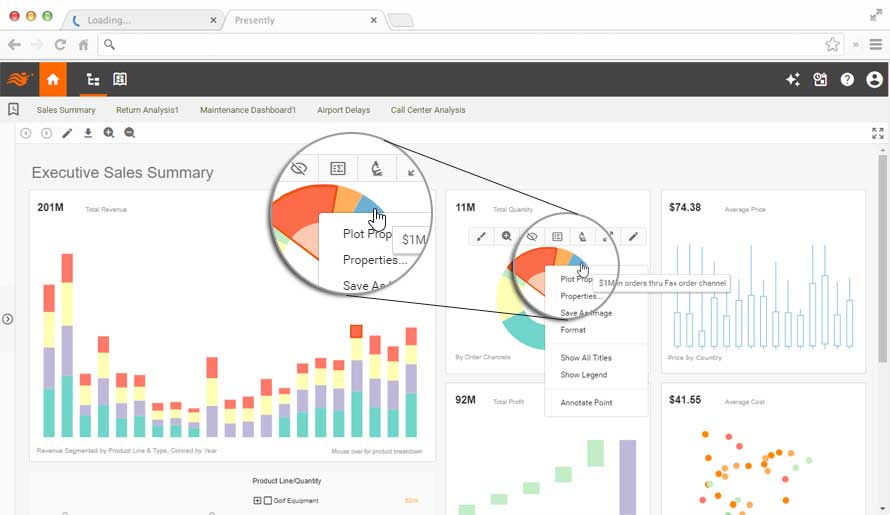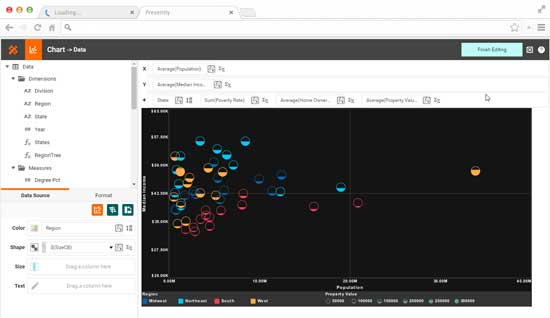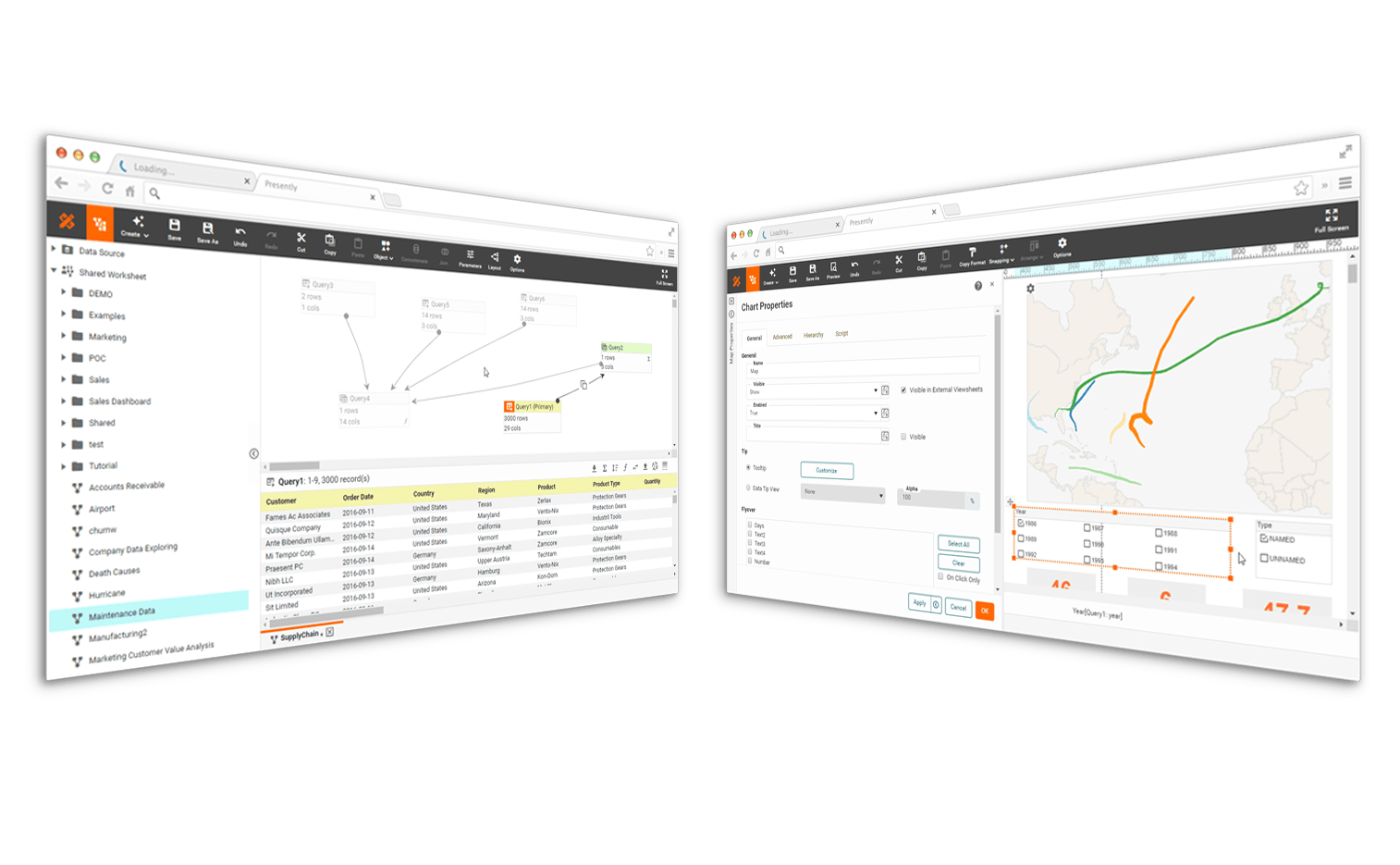Cloud-Native Technology, Easy-to-Use Dashboards
Cost-Efficient, Cloud Computing Expense Aligned Pricing
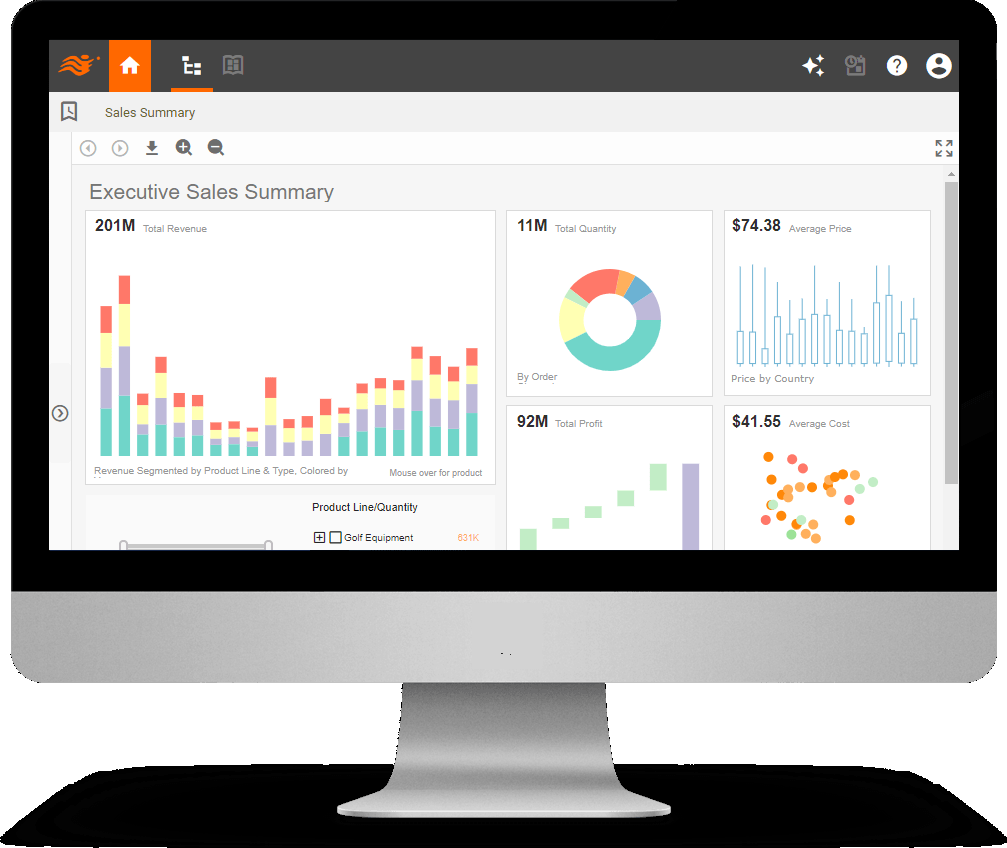
Award winning, trusted by 5,000+ customers since 1996
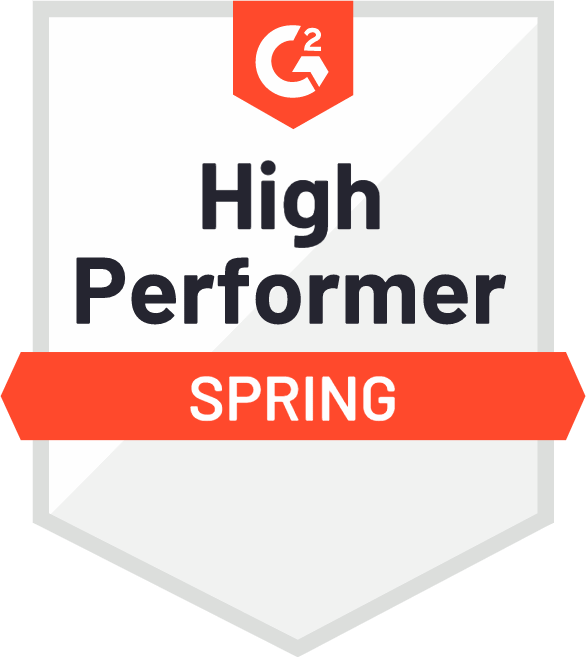

Best Cloud Platform Fit
Pay only for what you need and use
Pricing aligned with underlying cloud computing cost
Free Cloud Platform Consultation
Backed by real-world experience, we will help you choose most functional and cost efficient setup for your cloud platform
Business Users: Interactive Dashboards with Rich Customization and Self-Service
Designers: Rapidly Prepare Data and Design Dashboard Reports
Sample Customers




|






|
Spotlight: Dashboards for a Global Supplier of Metal Products
A global supplier of metal products typically tracks a diverse set of Key Performance Indicators (KPIs) and metrics to monitor various aspects of its operations, ensure efficiency, and drive strategic decision-making. Some of the key KPIs and metrics commonly tracked by such a supplier include:
-
Sales Performance: This includes metrics such as total revenue, sales growth rate, customer acquisition rate, and customer retention rate. Tracking sales performance helps the supplier understand market demand, identify growth opportunities, and evaluate the effectiveness of sales and marketing strategies.
-
Inventory Management: Metrics related to inventory turnover, inventory accuracy, and stock-out rates are crucial for optimizing inventory levels, minimizing carrying costs, and ensuring timely delivery to customers while avoiding stockouts or overstock situations.
-
Production Efficiency: KPIs like overall equipment effectiveness (OEE), cycle time, and scrap rates provide insights into the efficiency and productivity of manufacturing processes. Monitoring production efficiency helps identify bottlenecks, improve process optimization, and reduce waste.
-
Quality Control: Metrics such as defect rate, rework rate, and customer complaints help gauge the quality of products and identify areas for improvement in manufacturing processes or supplier quality. Maintaining high product quality is essential for customer satisfaction and maintaining a strong reputation in the market.
-
Supply Chain Performance: Tracking metrics related to supplier performance, lead times, on-time delivery, and transportation costs helps ensure smooth supply chain operations, minimize disruptions, and optimize costs across the entire supply chain network.
-
Financial Health: KPIs such as gross margin, net profit margin, and return on investment (ROI) provide insights into the financial performance and profitability of the business. Monitoring financial health helps identify areas for cost reduction, revenue optimization, and overall business sustainability.
-
Customer Satisfaction: Metrics such as Net Promoter Score (NPS), customer satisfaction score (CSAT), and customer retention rate are essential for measuring customer loyalty and satisfaction. Maintaining high levels of customer satisfaction is crucial for long-term business success and building strong customer relationships.
-
Environmental and Sustainability Metrics: As sustainability becomes increasingly important, tracking metrics related to energy consumption, carbon footprint, waste generation, and compliance with environmental regulations helps ensure responsible business practices and meet sustainability goals.
